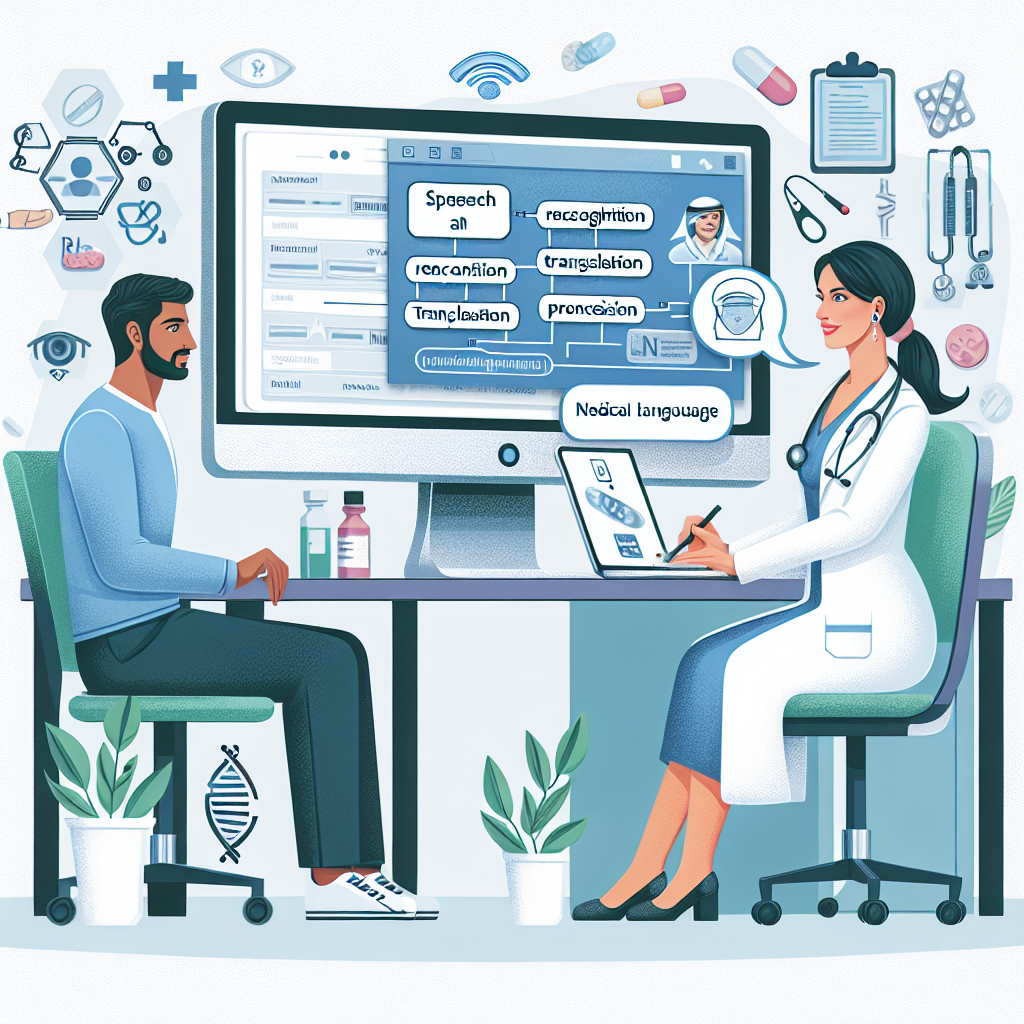Natural Language Processing (NLP) is a branch of artificial intelligence that focuses on the interaction between computers and humans using natural language. In recent years, NLP has gained significant attention in the healthcare industry for its potential to improve the quality of care, streamline administrative processes, and reduce costs.
There are numerous applications of NLP in healthcare, ranging from clinical documentation and coding to patient engagement and personalized medicine. In this article, we will explore some of the key ways in which NLP is being used in the healthcare industry and the benefits it can bring to both patients and healthcare providers.
1. Clinical Documentation and Coding
One of the most common uses of NLP in healthcare is in clinical documentation and coding. NLP technology can automatically extract information from unstructured clinical notes, such as physician notes, radiology reports, and pathology reports, and convert it into structured data that can be used for billing, quality reporting, and research purposes.
By automating the process of coding and documentation, NLP can help healthcare providers save time and improve the accuracy of their medical records. This can lead to more efficient workflows, fewer errors, and better patient outcomes.
2. Clinical Decision Support
NLP can also be used to provide clinical decision support to healthcare providers. By analyzing large amounts of structured and unstructured data, NLP algorithms can help identify patterns and trends in patient data, predict outcomes, and suggest appropriate treatment options.
For example, NLP can analyze a patient’s medical history, lab results, and imaging studies to help clinicians make more informed decisions about diagnosis and treatment. This can lead to more personalized care, better outcomes, and reduced healthcare costs.
3. Patient Engagement
NLP technology can also be used to improve patient engagement and communication. By analyzing patient-generated data, such as social media posts, online reviews, and patient satisfaction surveys, NLP algorithms can help healthcare providers better understand patient preferences, concerns, and needs.
This information can be used to tailor communication strategies, develop personalized treatment plans, and improve patient satisfaction. By engaging patients in their own care, healthcare providers can improve adherence to treatment plans, reduce hospital readmissions, and ultimately improve patient outcomes.
4. Population Health Management
NLP can also be used to analyze population health data and identify trends and patterns that can help healthcare providers improve the health of their communities. By analyzing data from electronic health records, claims data, and other sources, NLP algorithms can help identify at-risk populations, track disease outbreaks, and monitor the effectiveness of public health interventions.
By using NLP to analyze population health data, healthcare providers can identify areas for improvement, implement targeted interventions, and ultimately improve the health of their communities.
5. Drug Discovery and Development
NLP can also be used to accelerate the drug discovery and development process. By analyzing scientific literature, clinical trial data, and other sources of information, NLP algorithms can help researchers identify new drug targets, predict drug interactions, and optimize drug dosages.
By using NLP to analyze drug discovery and development data, researchers can accelerate the development of new treatments, reduce the cost of drug development, and ultimately improve patient outcomes.
Frequently Asked Questions (FAQs)
Q: How does NLP technology work in healthcare?
A: NLP technology works by analyzing large amounts of unstructured text data, such as clinical notes, patient records, and scientific literature, and extracting relevant information from that data. This information can then be used to improve clinical documentation, provide clinical decision support, and improve patient engagement.
Q: What are the benefits of using NLP in healthcare?
A: Some of the key benefits of using NLP in healthcare include improved clinical documentation and coding, more personalized care, better patient outcomes, and reduced healthcare costs. By automating routine tasks, analyzing large amounts of data, and providing decision support, NLP can help healthcare providers improve the quality of care they provide to patients.
Q: Are there any challenges to using NLP in healthcare?
A: While there are many benefits to using NLP in healthcare, there are also some challenges to consider. These include the need for large amounts of data to train NLP algorithms, the potential for bias in the data used to train these algorithms, and concerns about patient privacy and data security. It is important for healthcare providers to carefully consider these challenges and work to address them when implementing NLP technology.
Q: How can healthcare providers get started with using NLP?
A: Healthcare providers interested in using NLP technology can start by identifying their specific needs and goals, evaluating the available NLP solutions on the market, and working with vendors to implement and customize these solutions to meet their needs. It is also important to involve clinicians, IT staff, and other stakeholders in the implementation process to ensure a successful deployment of NLP technology.
In conclusion, NLP has the potential to revolutionize the healthcare industry by improving clinical documentation, providing clinical decision support, enhancing patient engagement, and accelerating drug discovery and development. By leveraging the power of NLP technology, healthcare providers can improve the quality of care they provide to patients, reduce costs, and ultimately improve patient outcomes.

